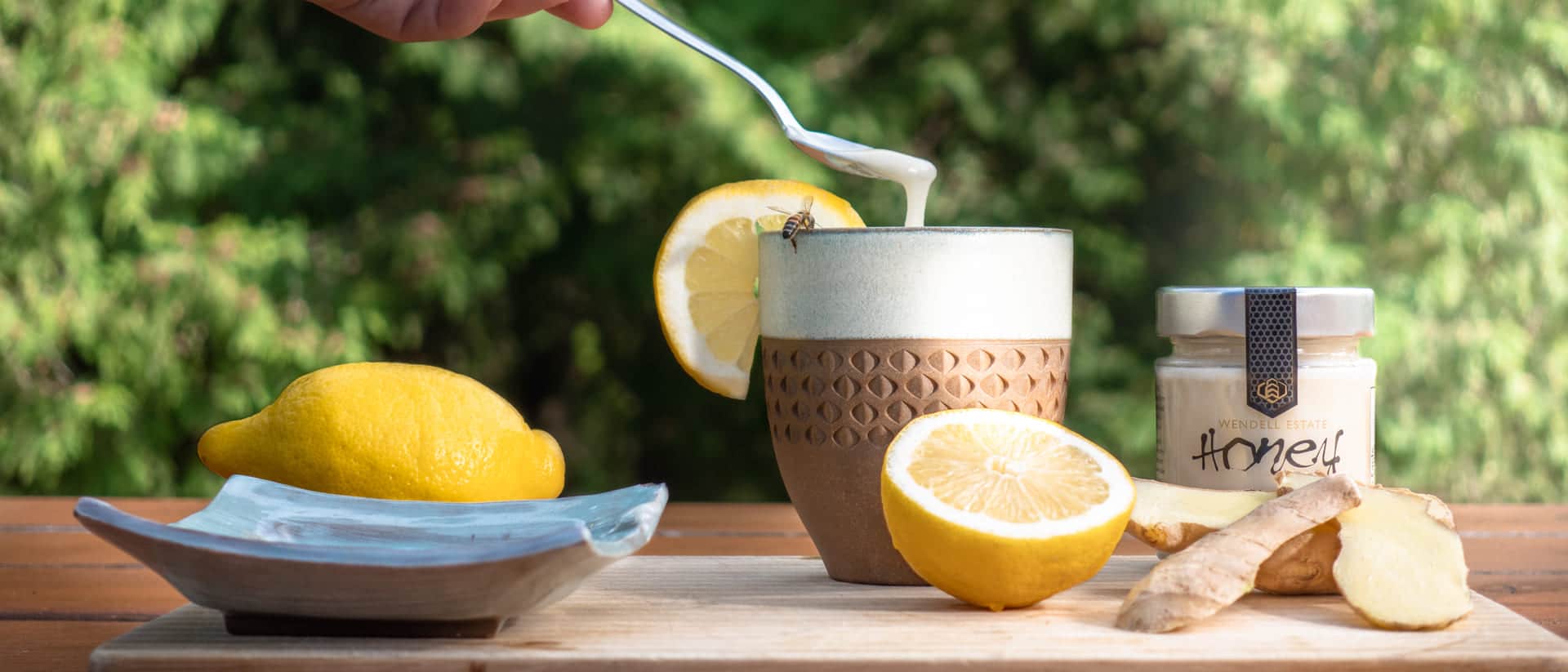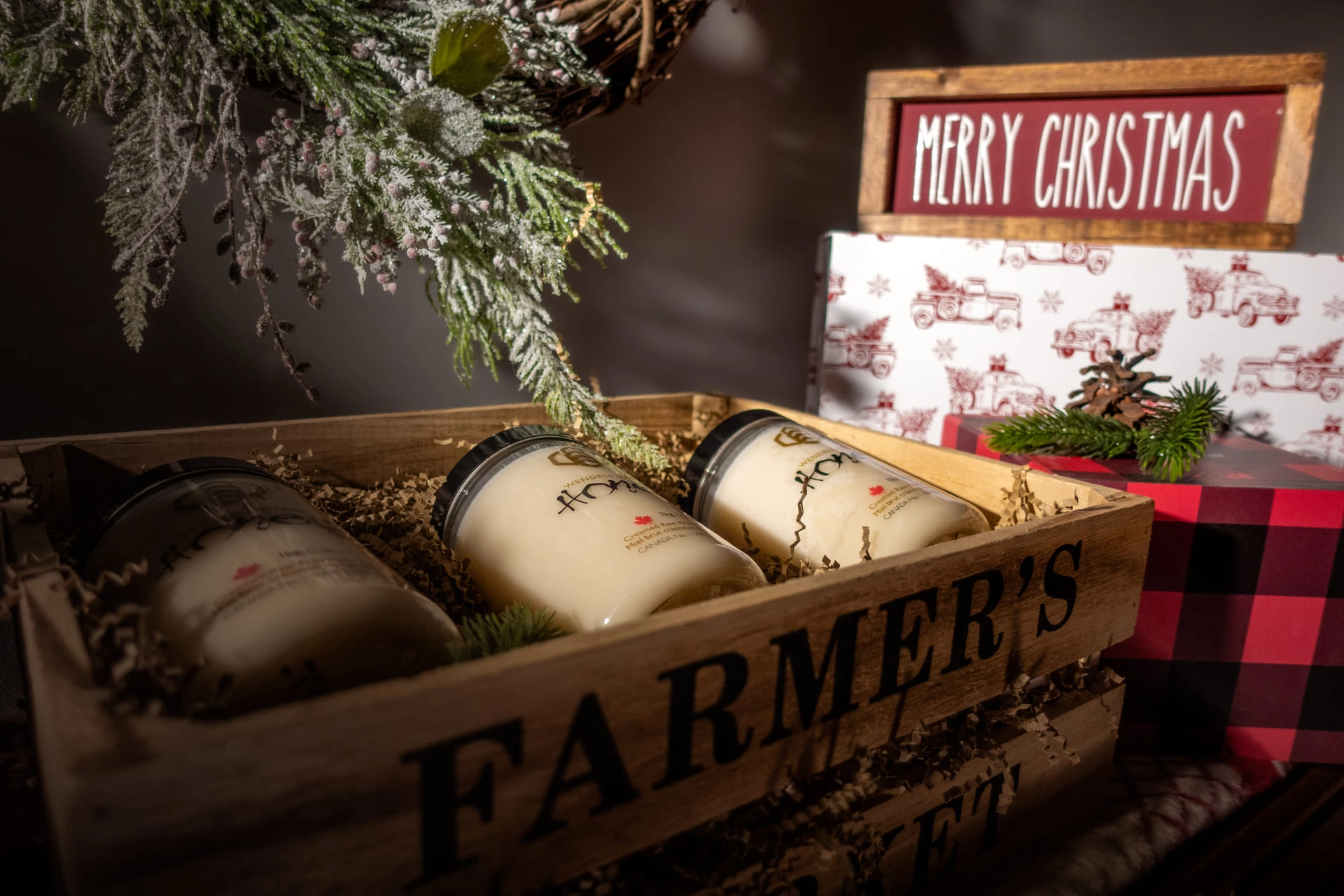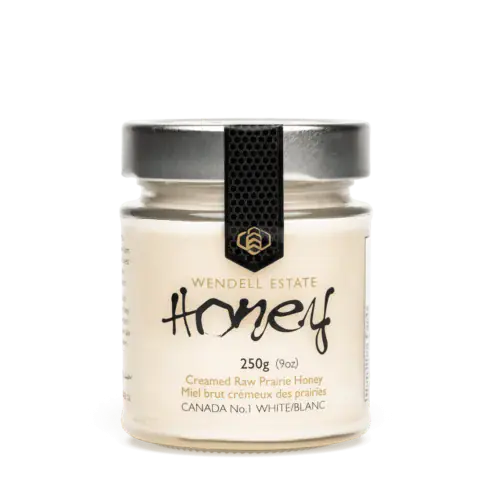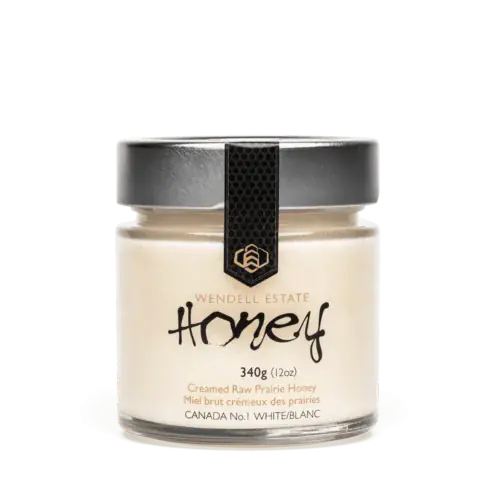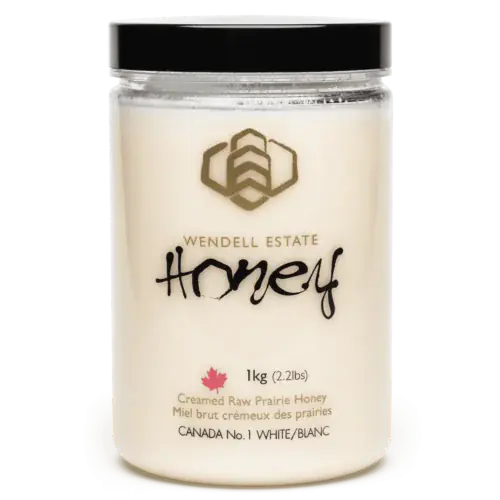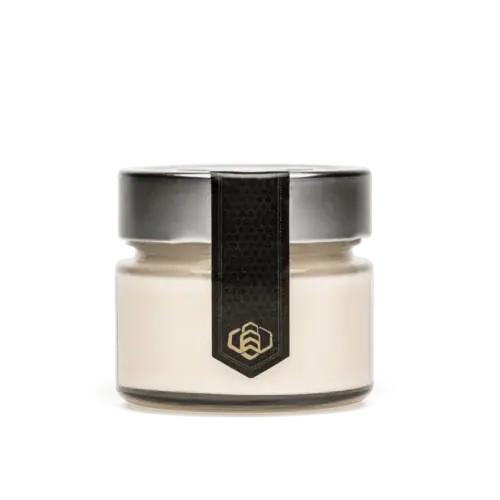Experience World-Class Raw Honey
As clean as organic honey, as healthy as manuka, as raw a honey as you'll find outside a beehive, and with our uniquely silky smooth texture and subtle fresh flavors.
Winter Holiday Sale
Winter is coming!
Wendell Estate Honey would like to help you stay cozy and warm. Raw honey is a natural and healthy source of energy that makes a thoughtful gift this winter. We’re offering 10% off any order of 4 or more jars with coupon code HolidayCheer until December 15.**Please be aware that with the prolonged Canada Post strike, we can no longer ensure delivery prior to December 25.
Shipping to all Canada & USA addresses is included in all prices.
Discounts available on multi-jar boxes – click the product above to see discount pricing options.
We do not currently ship overseas from our website, but Wendell Estate Honey might be available in your area: check out our international store locator.
Sign up for our quarterly Newsletter to get 5% off your order
Our newsletters occasionally include exclusive member discounts. We don’t sell or give away your data. Unsubscribe any time.
Buy Raw Honey from Real Beekeepers
Every drop of Wendell Estate Honey is harvested from our own bees and packaged only fresh on our farm by us, the beekeepers. Because our honey is never heated nor gets stored or transported in bulk drums, all of the healthy enzymes remain intact. Because the only “processing” we do is spinning the honey from the honeycomb and straining out larger pieces of wax, all the natural bee pollen and propolis remain in the honey. This is the honey the bees eat and this is the honey the beekeeper eats and we’d love to share it with you. We’re honoured that our passion for honey perfection has been recognized by prestigious international awards: the gold medal for world’s best soft-set (creamed) honey at the 2019 World Beekeeping Awards, followed by a second win at the 2023 WBA. Our honey received a platinum award (the highest) at the 2020 London International Honey Awards. Wendell Estate Honey is also the first honey in Canada to obtain GenuHoney’s rigorous certificate of honey authenticity. In 2024, The Canadian Honey Council recognized Wendell Estate Honey’s founder and owner, Tim Wendell’s lifetime of dedication to improving beekeeping in Canada with the Rathje Memorial Award for outstanding efforts in contributing to Canadian Beekeeping.
Only the best honey our bees make is eligible for the Wendell Estate jars. You can see the journey of our premium raw honey from the beehive directly to the jar here.
Let us change the way you think of honey. Eat honey like a beekeeper!
What Our Customers are Saying
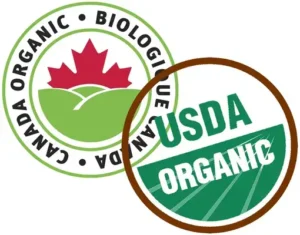
Why Our Honey Lacks Organic Certification, And Why That’s Less Important Than Many Think
Organic certification of honey is a very complex. I have written quite a few words about this in this blog about organic certification of honey in North America, followed by this correction and update on USDA Organic certified honey, and this article on USDA Organic honey. Below are some reasons why organic certification of honey may not represent everything that some people assume it does (click the headline to expand the full explanation).
Regardless of the possibility that there may be areas disqualifying organic certification within the large “forage zone” defined by the organic certifying bodies, this doesn’t mean that the bees foraged nectar in this area at all, or when they were collecting the nectar that went into any given jar of honey. Furthermore, due to their natural physiology, honeybees are remarkably efficient at filtering most possible contaminants so that they aren’t expressed into the honey. The purity of our honey is constantly confirmed by dozens of 3rd party laboratory tests each year.
Our bulk honey, like honey from any other honey producer supplying honey packaging companies (remember that we are beekeepers first and that the majority of honey produced on our farm is sold in bulk to other brands that blend it to raise the quality of their product), is routinely tested by third party laboratories as a condition of sale to the packaging company. Our retail Wendell Estate Honey, the finest honey our bees produce in a season, has been tested repeatedly as we export it and enter it into honey quality contests. These tests measure contaminants such as herbicide and pesticide residues, a long list of antibiotics and adulteration with sugar syrups in addition to heavy metals. The results always show that our honey is as clean and pure as any organic honey out there: completely free from pesticides, antibiotics, heavy metals, and sugar syrups.
Legitimate organic certification decreases the chance that there is an added harmful contaminant like a pesticide, antibiotic, heavy metal in the honey, increasing the food safety of the organic product. Heath benefits of raw honey on the other hand are conferred by the presence of natural substances within the honey, whether the honey meets organic certification standards or not. These beneficial substances come either from the flowers that the bees gather the nectar from or are added by the bees themselves while they transform the nectar into honey.
While organic honey has a lower chance of containing harmful contaminants, raw non-organic honey confers similar health benefits as raw organic honey. In fact, non-certified real raw honey is indisputably higher in health benefits than pasteurized, processed organic honey since the processing removes or destroys many of the substances which give raw honey its health benefits.
The commendable motivation for purchasing organic foods to support more environmentally favorable agricultural practices has decreased effect in the case of buying organic honey.
Organic certification of honey depends on the agricultural management of circular area, called a buffer zone, of more than 28 km2 (>10 square miles) centered on the beehives. Up to 54 “quarter-section” fields may be wholly or partially within this buffer zone. These fields are managed by up to dozens of different farmers, companies and/or landowners. If even one of these land managers uses a proscribed substance like a pesticide or herbicide or other proscribed chemical, or seeds a GMO crop on even a single field within the buffer zone, all of the honey produced by that bee yard is excluded from legitimate organic certification. Towns, villages, golf courses and parks all routinely use substances that would preclude legitimate organic certification of honey produced by bees located within 3km (1.8 miles).
Many of these countries are not known for rigorous, transparent, fair government certification agencies. However both COR and USDA recognize organic certifications from many other countries. On the commodity market, the price of bulk “organic” honey imported from countries such as Brazil, Mexico and India, the source of much of North America’s organic honey, is lower than the price of non-organic honey produced in North America. Brands often buy this cheap, foreign-certified organic honey, import it in bulk, blend and package it domestically and the label it (usually legitimately by current CFIA and USDA regulations) as “USDA Organic” or “COR Organic”.
These private organic certifying agencies are mandated to base certification on COR regulations. But being independent for-profit companies, there’s a conflicting incentive for them to certify more producers as organic in order to increase revenue from certifying fees. The Canadian certifying agencies operate at different levels of rigor, so it could be worth looking into which certifying body has certified your organic food products.
Canadian producers that have COR organic certification, can apply for USDA certification based on the fact that the USDA recognizes COR certification, even though the USDA has no formal guidelines for certification of domestic honey produced by American beekeepers. In fact the vast majority (arguably all) legitimately labeled USDA Organic honey is imported from foreign countries.
Store Locator
Select your location below to find a retailer near you
CANADA
Domestic raw honey stores
UNITED STATES
Buy our premium raw honey in USA
OVERSEAS
Shop raw honey internationally
Our Guarantee
When you purchase our gourmet raw honey directly from our online store, we guarantee that your honey will arrive, fresh and white with all the award-winning subtle flavours and healthy organic compounds intact and undimished by heat or storage.
How to Keep Your Soft-Set Raw Honey Fresh and Delicious
Wendell Estate Honey is a completely raw, unprocessed, living food. Like any fresh food, raw honey requires appropriate storage to maintain its best quality for as long as possible.
We recommend that you keep an amount of honey that you will use within 2-3 months at room temperature so that the honey is soft and spreadable. Raw honey that you expect to keep for more than 2-3 months should be stored in a sealed container in the refrigerator (good), or freezer (best).
Is your Wendell Estate honey too firm? You can soften it by putting it in a warm (~ 30°C) water bath for about 30-60 minutes or you can use a spoon or butter knife to stir it for a moment (click here for short video demonstration)
Shipping and Delivery Notes
For Canadian addresses, we ship with CanadaPost. Please allow about a week for delivery in normal times.
For USA addresses we ship with CanadaPost/USPS. Please allow about 2 weeks for delivery in normal times to account for delays at customs.
Please note that the above estimates are for “normal” times. Pandemics, holidays and other unpredictable situations can greatly increase delivery times in some instances.
We don’t currently ship outside of North America, but you can check our International Store Locator above for shops in your country.
We send out tracking information from our website when we ship your order. If you haven’t received tracking information within 2 business days of placing your order, please check your email spam/junk folder.
